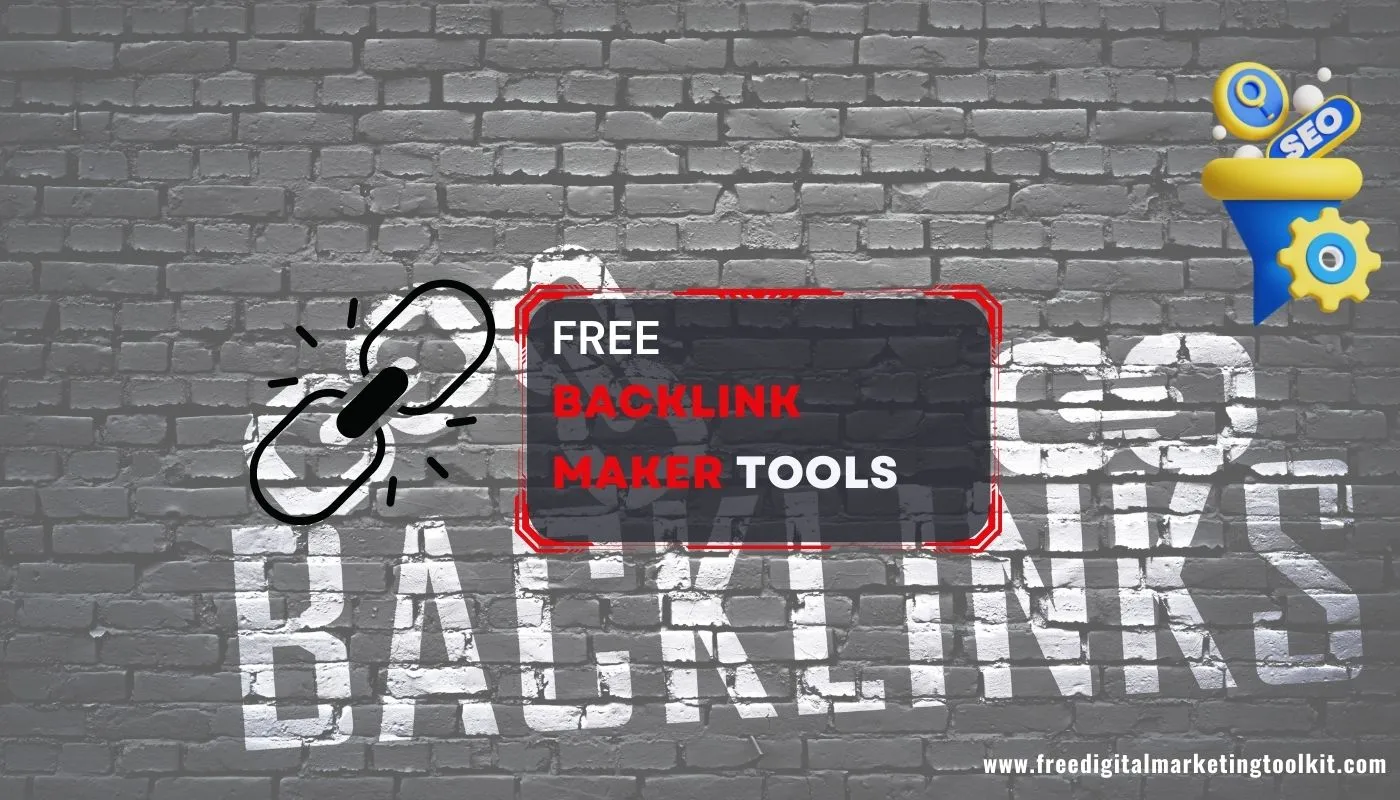
In the fast-paced world of e-commerce, having a strong online presence is crucial for success. Search Engine Optimization (SEO) plays a pivotal role in driving organic traffic to e-commerce websites. To achieve optimal results, it’s essential to leverage the power of SEO tools specifically designed for e-commerce websites. In this article, we will explore some of the best SEO tools that can help you boost your e-commerce website’s visibility, increase organic traffic, and drive conversions.
SEO for E-commerce Websites
Before knowing the best SEO tools for Ecommerce websites, let’s understand why SEO is vital for e-commerce websites. With millions of online stores competing for visibility, ranking high on search engine results pages (SERPs) is imperative to attract potential customers. Effective SEO strategies can optimize your website’s content, enhance user experience, and improve your website’s authority, ultimately leading to higher rankings and increased visibility.
Best SEO Tools for E-commerce Websites
If you are running any type of Ecommerce website and want to optimize your web page or store to get better rank on search engines, then you can look at the following SEO tools:
1. Keyword Research Tools
Understanding Keyword Research
Keyword research is the foundation of any successful SEO campaign. It helps you identify relevant keywords and phrases that potential customers are using to search for products or services. Here are three essential keyword research tools for e-commerce websites:
Google Keyword Planner
Google Keyword Planner is a free tool that provides valuable insights into keyword search volume, competition, and related keywords. It allows you to discover high-ranking keywords and plan your content strategy accordingly.
SEMrush
SEMrush is a comprehensive SEO tool that offers a wide range of features, including keyword research. With its extensive keyword database, SEMrush enables you to find profitable keywords, analyze your competitor’s strategies, and uncover new opportunities.
Ahrefs
Ahrefs is a powerful SEO tool known for its robust backlink analysis capabilities. However, it also offers a keyword research feature that helps you identify valuable keywords, analyze their difficulty level, and track their rankings
2. On-Page Optimization Tools
On-page optimization is an essential aspect of SEO for e-commerce websites. It involves optimizing various elements on your web pages to improve their visibility and relevance to search engines. Here are three essential on-page optimization tools:
Yoast SEO
Yoast SEO is a popular WordPress plugin that simplifies on-page optimization. It provides real-time feedback and suggestions to help you optimize your content for target keywords, improve meta tags, create SEO-friendly URLs, and enhance overall on-page SEO.
Moz Pro
Moz Pro is a comprehensive SEO toolset that includes powerful on-page optimization features. With its Page Optimization feature, you can easily analyze your web pages, identify optimization opportunities, and receive actionable recommendations to improve your on-page SEO.
SEOptimer
SEOptimer is a user-friendly SEO audit tool that offers a dedicated on-page optimization module. It scans your web pages, analyzes various on-page elements, such as meta tags, headings, and content, and provides optimization suggestions to boost your website’s visibility in search results.
3. Technical SEO Tools
Streamlining Technical SEO
Technical SEO focuses on optimizing the technical aspects of your e-commerce website to improve its crawl ability, indexability, and overall performance. Here are three essential technical SEO tools:
Google Search Console
Google Search Console is a free tool provided by Google that helps you monitor and optimize your website’s presence in search results. It provides valuable insights into indexing status, crawl errors, sitemap submission, and other technical aspects, allowing you to identify and fix potential issues that may affect your website’s SEO performance.
Screaming Frog
Screaming Frog is a powerful desktop-based crawler that helps you analyze and audit your website’s technical SEO elements. It crawls your website, identifies issues such as broken links, duplicate content, missing meta tags, and provides detailed reports to guide your optimization efforts.
DeepCrawl
DeepCrawl is a cloud-based website crawler that offers comprehensive technical SEO analysis. It provides in-depth insights into various technical aspects, including site structure, URL optimization, internal linking, and more. With DeepCrawl, you can identify and address technical issues that may hinder your website’s visibility and performance.
4. Backlink Analysis Tools
Strengthening Backlink Profile
Building a strong backlink profile is crucial for improving your website’s authority and rankings. Backlink analysis tools help you evaluate your existing backlinks, identify new link-building opportunities, and monitor your competitors’ backlink strategies. Here are three essential backlink analysis tools:
Majestic
Majestic is a popular backlink analysis tool that provides comprehensive insights into your website’s backlink profile. It offers metrics such as Trust Flow and Citation Flow to assess the quality and authority of your backlinks. With Majestic, you can analyze your competitors’ backlinks, discover new linking domains, and monitor your backlink growth.
LinkResearchTools
LinkResearchTools is a robust backlink analysis toolset that offers advanced features for in-depth backlink analysis. It provides a wide range of metrics and reports to evaluate the quality of your backlinks, identify toxic links, and recover from Google penalties. Additionally, LinkResearchTools offers competitive analysis features to uncover your competitors’ link-building strategies.
Monitor Backlinks
Monitor Backlinks is a user-friendly backlink analysis tool that helps you monitor your website’s backlinks and those of your competitors. It provides real-time notifications for new backlinks, allows you to disavow toxic links, and offers valuable insights to improve your link-building efforts. With Monitor Back
5. Competitor Analysis Tools
Staying Ahead of Competitors
Analyzing your competitors’ strategies can provide valuable insights and help you stay ahead in the competitive e-commerce landscape. Competitor analysis tools allow you to understand your competitors’ SEO tactics, identify their strengths and weaknesses, and uncover opportunities for improvement. Here are three essential competitor analysis tools:
SpyFu
SpyFu is a comprehensive competitor analysis tool that enables you to spy on your competitors’ keywords, ad campaigns, and organic search rankings. It provides detailed reports on their top-performing keywords, ad copy, and landing pages, giving you a competitive edge in optimizing your SEO and advertising strategies.
SimilarWeb
SimilarWeb is a powerful competitive intelligence tool that provides a wealth of information about your competitors’ website traffic, audience demographics, and engagement metrics. It allows you to compare your website’s performance against your competitors, identify their traffic sources, and uncover new opportunities for attracting targeted visitors.
BuzzSumo
BuzzSumo is a content analysis tool that helps you understand your competitors’ content strategies. It allows you to discover their most shared and engaging content, identify influential industry leaders, and gain insights into popular content formats and topics. With BuzzSumo, you can refine your content marketing efforts and create compelling content that resonates with your target audience.
6. Reporting and Analytics Tools
Measuring SEO Success
Measuring and analyzing the performance of your SEO efforts is essential for optimizing your e-commerce website’s visibility and conversions. Reporting and analytics tools provide valuable data and insights to track your website’s performance, monitor key metrics, and identify areas for improvement. Here are three essential reporting and analytics tools:
Google Analytics
Google Analytics is a powerful web analytics tool that offers detailed insights into your website’s traffic, user behavior, conversions, and more. It allows you to track the performance of your SEO campaigns, identify high-performing pages, and understand how users interact with your website. With Google Analytics, you can make data-driven decisions to optimize your website’s performance.
SE Ranking
SE Ranking is an all-in-one SEO software that includes robust reporting and analytics features. It provides comprehensive reports on keyword rankings, backlinks, website audits, and competitor analysis. With SE Ranking, you can track the progress of your SEO campaigns, identify opportunities for improvement, and generate professional reports to share with clients or team members.
Raven Tools
Raven Tools is a comprehensive SEO platform that offers advanced reporting and analytics capabilities. It allows you to track keyword rankings, monitor backlinks, analyze website performance, and generate detailed reports. Raven Tools also integrates with other SEO data sources, such as Google Analytics and Google Search Console, to provide a holistic view of your website’s performance.
Conclusion
In the highly competitive e-commerce landscape, implementing effective SEO strategies is crucial for the success of your online store. The best SEO tools for e-commerce websites provide a range of features to optimize your website’s visibility, improve on-page and technical SEO, analyze competitors’ strategies, and measure the success of your SEO efforts. By leveraging these tools and staying updated with the latest SEO trends, you can drive organic traffic, increase conversions, and achieve sustainable growth for your e-commerce business.
FAQs
Q. What are the essential SEO tools for e-commerce websites?
A. The essential SEO tools for e-commerce websites include keyword research tools like Google Keyword Planner, SEMrush, and Ahrefs, on-page optimization tools like Yoast SEO, Moz Pro, and SEOptimer, technical SEO tools like Google Search Console, Screaming Frog, and DeepCrawl, backlink analysis tools like Majestic, LinkResearchTools, and Monitor Backlinks
Q. Can I rely solely on free SEO tools for my e-commerce website?
A. While free SEO tools can provide valuable insights and help you optimize your e-commerce website to some extent, they often have limitations in terms of functionality and data accuracy. Investing in paid SEO tools can offer more comprehensive features, advanced analytics, and access to larger databases, giving you a competitive advantage and allowing for more effective SEO strategies.
Q. How do I choose the right SEO tools for my e-commerce website?
A. Choosing the right SEO tools for your e-commerce website depends on various factors, such as your budget, specific needs, and level of expertise. Consider the features and functionalities offered by different tools, their user-friendliness, customer reviews, and the level of customer support provided. It’s also beneficial to take advantage of free trials or demos to test the tools and determine if they meet your requirements.
Q. Are these SEO tools suitable for small businesses?
A. Yes, these SEO tools are suitable for small businesses as well. In fact, many of them offer pricing plans that cater to different business sizes, including small businesses. It’s important to choose tools that align with your budget and requirements while providing essential features for optimizing your e-commerce website’s SEO.
Q. Can I use these tools for websites in languages other than English?
A. Yes, most of these SEO tools can be used for websites in languages other than English. They support multiple languages and provide global SEO capabilities. However, it’s important to ensure that the specific features and data provided by the tools are applicable and relevant to the language and region of your target audience.
Q. How often should I use these SEO tools for my e-commerce website?
A. The frequency of using SEO tools for your e-commerce website depends on the scale of your business, the level of competition, and the ongoing SEO strategies you implement. Generally, it’s recommended to perform regular keyword research, on-page optimization checks, and backlink analysis at least once a month. However, it’s important to monitor your website’s performance regularly and adjust your SEO efforts accordingly.







